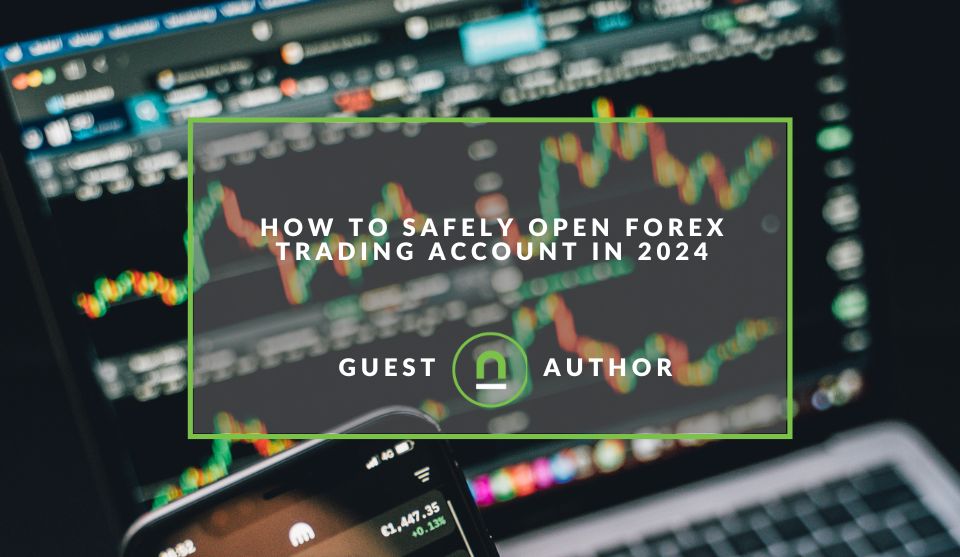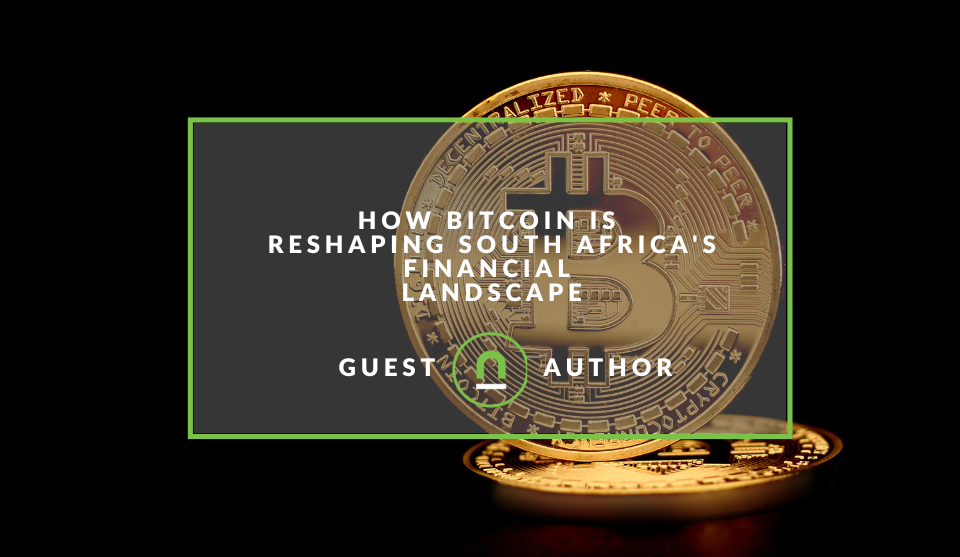Recent posts

Industry Experts
A Comprehensive Guide to Flyer Design: Digital & Physical Distribution
26 December 2024

Money Talks
Why Is There A Surge in Bitcoin Adoption in South Africa
24 December 2024

Money Talks
How To Safely Open Forex Trading Accounts in 2024
18 December 2024

Mind, Body & Soul
Understanding Cannabis in Modern Wellness
12 December 2024
Popular posts
Extravaganza
Trending Music Hashtags To Get Your Posts Noticed
24 August 2018
Geek Chic
How To Fix iPhone/iPad Only Charging In Certain Positions
05 July 2020
Extravaganza
Trending Wedding Hashtags To Get Your Posts Noticed
18 September 2018
Money Talks
How To Find Coupons & Vouchers Online In South Africa
28 March 2019
How BTC is Reshaping The South African Financial Landscape
12 September 2024 | 0 comments | Posted by Josh Welman in Money Talks
The changing global face of finance has everything to do with cryptocurrencies, and South Africa is no exception. Bitcoin has been the story of the last decade, becoming the best-performing asset class over that time period and eventually reaching trillion-dollar market cap status.
Growing at an extraordinary pace, digital assets like Bitcoin affect the economy of the nation and everyday life. It is no longer a fringe internet money; it's becoming a global player in the settlement of wealth.
While countries can try and fail to ban Bitcoin, the smarter move would be to embrace the inevitable, but when have governments ever opted for the smarter choice, especially regarding technology?
Large institutions like governments tend to be laggards in any adoption of a new standard, so while time is on our side, it's worth discussing the various repercussions of the entry of Bitcoin into the South African economy and the associated challenges as capital moves between the btc to zar exchange and vice versa.
Bitcoin's Emergence in South Africa
Bitcoin, introduced by the pseudonymous Satoshi Nakamoto in 2009, is run on a decentralised network based on blockchain technology: a system guaranteeing transparency and security, completely released from traditional financial mediators.
Since it is native money, Bitcoin has been available globally from the moment the genesis block was mined, and since South Africa is one of the African nations with the highest internet adoption, it would stand to reason that many South Africans would find their way to Bitcoin faster than citizens of neighbouring countries.
While the South African Rand performs relatively well compared to that of the basket of other African countries, for the average South African, that fact provides little comfort as their purchasing power continues to erode.
Thus, uniquely, Bitcoin provides an alternative financial system desirable to individuals for gaining autonomy and economic instability.
Financial Inclusion and Empowerment
One of the most visible impacts of Bitcoin in South Africa is revolving around financial inclusion. A large segment of South Africa's population does have access to banking but is either unbanked or would prefer not to bank as the services don't cater to their needs.
These users will either opt to use cash or cash-like instruments like instant money and vouchers and are unlikely to invest in assets or cash-yielding instruments, so the money they save loses value over time.
Bitcoin affronts this scenario, presenting a type of digital substitute for these persons to access financial services and participate in the world economy without needing to rely on conventional banking structures.
For instance, in South Africa, mobile phone penetration is high, and most people transact financially using their phones. Bitcoin can build on this by providing a way for people to save, send and receive money.
The assumption is that once people have money that isn't controlled and debased, it will aid in democratising finance in South Africa and reduce the gaps related to the socioeconomic group by offering autonomy over finances to those previously excluded from relations in the formal economy.
Remittances and Cross-Border Payments
High fees and long processing times characterise traditional remittance services in South Africa. Bitcoin is much cheaper yet faster, a perfect alternative for cross-border money transfers. For working South Africans, sending back home remittances can also leverage Bitcoin.
It peels away heavy fees and inconveniences associated with conventional remittance means. This efficiency is particularly beneficial for families relying on remittances for their livelihoods.
Moreover, the currency is decentralised by nature, which makes it free of much regulation and restriction that normal conventional currencies operate by. Such an asset has made it more practical to the tens of thousands of South African expat workers worldwide.
Today, it's easy to acquire Bitcoin and send it back home for friends and family to convert it back into Rands using a local exchange at a fraction of the cost, and that incentive drives more interest in the asset.
Investment and Wealth Preservation
What has drawn crowds of South African investors to these very online currencies is their price volatility; they foster high returns. Despite the associated risks, Bitcoin has recorded appreciable value over the years, hence making these risk-takers wealthy.
Those wealthier early adopters in South Africa see digital currencies as an asset class and hence see the benefits of hedging their investment portfolios more and more.
In a country where the economy is susceptible to inflation and the local stock market has not produced much in terms of inflation protection, which leads to the depreciation of the value of traditional savings, Bitcoin protects one from value loss.
While subject to short-term volatility, Bitcoin holders are not subject to consistent currency devaluation risks, which are guaranteed in Rands, while Bitcoin acts as a better store of value than anything they can acquire locally.
Challenges and Risks
While Bitcoin offers numerous benefits, its adoption in South Africa is not without challenges and risks.
Regulatory Environment
The regulatory scenario regarding the use of cryptocurrencies in South Africa is continuously emerging. As of now, independent investors and businesses tensely look out for interactions with digital currency until further clarity from the authorities.
The regulatory bodies are working on creating frameworks striking a balance between the disputation of innovation and consumer protection and, at the same time, bringing in ambiguities in the space that remain till these regulations are firmly fixed—a big barricade to wide-scale adoption.
Volatility
The attribute can be both an attraction and a repelling because, since potential yields are high from an investment, the risk of loss consequently increases in value due to price movement.
Dealing with Bitcoin investments presents a huge financial risk because its value keeps on changing. South Africans dealing in Bitcoin investments need to be aware of these risks and proceed with caution.
Security Concerns
While blockchain technology is fairly secure, the person holding the funds isn't infallible. South Africa is a country riddled with crime, and when you take self-custody of Bitcoin, you accept the fact that you are personally responsible for safeguarding your wealth.
Suppose criminals come after you and force you to hand over your Bitcoin. In that case, there is very little you can do to recover those funds, so South Africans must take safety precautions like duress wallets, passphrases, and even distributed multi-sig setups.
Bitcoin in Everyday Life
Beyond its economic impact, Bitcoin is gradually becoming a part of everyday life in South Africa.
Merchant Adoption
The vast majority of merchants and retailers throughout South Africa have yet to desire to accept Bitcoin as a payment method.
We have seen examples of Pick n Pay and a few other retailers adding support for Bitcoin, while smaller informal businesses are also starting to test the waters, but it is by no means a standard form of transaction settlement.
It will take time for merchants to realise the value, and eventually, the appeal of lower transaction fees occurring between Bitcoin payments, as opposed to traditional payment methods, makes this a win-win scenario.
Additionally, as more South Africans gain a sizable portion of their wealth from Bitcoin, they will be looking to spend their funds, and such activity makes it possible for businesses to gain more customers and realise higher sales.
Educational Initiatives
Educational initiatives are very important for reaching wider adoption with Bitcoin. Companies and institutions are conducting courses and workshops related to cryptocurrencies and blockchain technology in South Africa.
People should be empowered with information to understand that the benefits of Bitcoin surpass those of the risks and that it is a push for them to let it get into everyday life.
Community Projects
That's why Bitcoin is subjective about social initiatives: non-profit organisations allow Bitcoin donations to provide transparency into how their funds are deployed and deliver another channel through which supporters can contribute.
We've already seen projects like Bitcoin Ekasi, Bitcoin Witsand, and a few more start building grassroots initiatives in South Africa with some promising early results. These dynamics reaffirm the prospect of this cryptocurrency becoming the driver of positive change beyond the bounds of financial markets.
Future Prospects
South African authorities took a lax stance on Bitcoin for many years. It was a fringe internet trend at the time, with only a few success stories. Still, as it's grown to a point where it clears trillions of rands annually, governments are licking their lips at the prospect of securing an income from this activity.
South African revenue services have started to aim at so-called non-compliant Bitcoiners. They are looking to impose heavy penalties on those who do not pay their taxes from trades, and as this rolls out, more friction will surely be added to the push for adoption.
Clear regulatory frameworks will bring much-needed clarity and confidence to investors and businesses but will come with a burden of additional costs and tax obligations.
South Africa Has its Own Race For Adoption
The rise of Bitcoin in South Africa is a signal of gigantic transformation across the financial terrain—from improving financial inclusiveness and easing cross-border transactions to providing investment opportunities and serving as an inflation hedge.
However, mass adoption does not come easily, if at all, considering challenges brought about by uncertainty from regulators, price volatility, and security concerns.
Tell us your story.
Would you like to write for nichemarket just like Josh has? Find out how to submit a guest post, and when you're ready, you can contact us.
Contact us
If you would like to know more about digital assets or would like to market your digital asset company or how to set it up for your business, then don’t be shy. We’re happy to assist; simply contact us.
Are you looking to promote your business?
Finance business owners can create their free business listings on the market. The more information you provide about your business, the easier it will be for your customers to find you online. Registering with nichemarket is easy; all you will need to do is head over to our sign-up form and follow the instructions.
If you require a more detailed guide on how to create your profile or your listing, then we highly recommend you check out the following articles.
Recommended reading
If you enjoyed this post and have a little extra time to dive deeper down the rabbit hole, why not check out the following posts on cryptocurrency and blockchain?
- Why Blockchain and Cryptocurrency Is The Future Of Money
- 24 Ways To Earn Cryptocurrency
- How To Pay Tax On Cryptocurrency In South Africa
- How To Buy Bitcoin In South Africa
- Why Does Your Bitcoin Wallet Address Keep Changing?
- How To Tokenise Your Art & Sell It For Cryptocurrency
Disclaimer: This article should not be taken as, and is not intended to provide any investment advice and is for educational purposes only. As of the time of posting the writers may or may not have holdings in some of the coins or tokens they cover. Please conduct your own thorough research before investing in any cryptocurrency, as all investments contain risk.
You might also like
How to Improve Your Decision-Making Skills as a Prop Firm Trader
02 December 2024
Posted by Nina Sandic in Money Talks
Key strategies that drive decision-making skills in prop trading. Master risk management, emotional control, and analytical techniques to boost your ...
Read moreA Comprehensive Guide to Flyer Design: Digital & Physical Distribution
26 December 2024
Posted by Dmitri Sahakyan in Industry Experts
A checklist you can use to create your next flyer for distribution physically and digitally through popular online platforms to give your promotion m...
Read more{{comment.sUserName}}
{{comment.iDayLastEdit}} day ago
{{comment.iDayLastEdit}} days ago
 {{blogcategory.sCategoryName}}
{{blogcategory.sCategoryName}}

